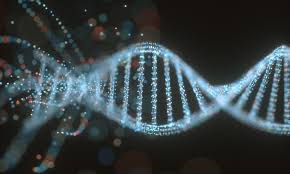How do butyrate producing foods support mental health, longevity?
Jan
26
 Foods that support butyrate production, a type of short chain fatty acid, include whole grains, raspberries, pears, apples, green peas, broccoli, and turnip greens.
Foods that support butyrate production, a type of short chain fatty acid, include whole grains, raspberries, pears, apples, green peas, broccoli, and turnip greens.
The Science Magazine cited a review by Samuel Minot, a microbiome researcher at Seattle's Fred Hutchinson Cancer Research Center. He and his team analyzed 47 studies on collective genomes of gut microbes and their relationship with 13 common diseases. They compared these studies with 24 genome-wide association (GWA) studies dealing with human genomes and found that genetic signature of gut microbes was 20% more effective at "discriminating between a healthy and ill person" (source: see https://www.sciencemag.org/news/2020/01/microbes-your-gut-could-predict-whether-you-re-likely-die-next-15-years ).
A November 17, 2019 article in the New Atlas, reported a separate study that fecal transplants (in effect "microbial transplant") from young mice to older mice showed new neurons being produced called neurogenesis, a key to slowing aging. While testing in mice does not necessarily translate to the same results in humans, it is a significant factor suggesting possible solutions. The study found a greater volume of microbes produced short chain fatty acid called butyrate.
“We’ve found that microbes collected from an old mouse have the capacity to support neural growth in a younger mouse,” explains Sven Pettersson, lead on the research team from Nanyang Technological University in Singapore in the New Atlas article.
A January 06 2020 article in Neuroscience News says a study by a University of Kentucky consortium found similar results of tests for stroke victims. Researchers found that short chain fatty acids additive to the drinking water of mice showed better stroke recovery. (See https://neurosciencenews.com/gut-microbes-stroke-15425/amp/ ).
So much attention has been given to the influence of gut microbiomes on our mental health just in the past few weeks. These are a sampling of them.
While Pettersson acknowledges that further research is required, it suggests that healthy aging remedies such as herbs and good prebiotic and probiotic foods that enhance butyrate production can support longevity, and healthy living into our twilight years. To bring it home, examples of foods that support butyrate production include whole grains, raspberries, pears, apples, green peas, broccoli, and turnip greens.
https://newatlas.com/health-wellbeing/butyrate-gut-microbiome-neurogenesis-brain-aging/


